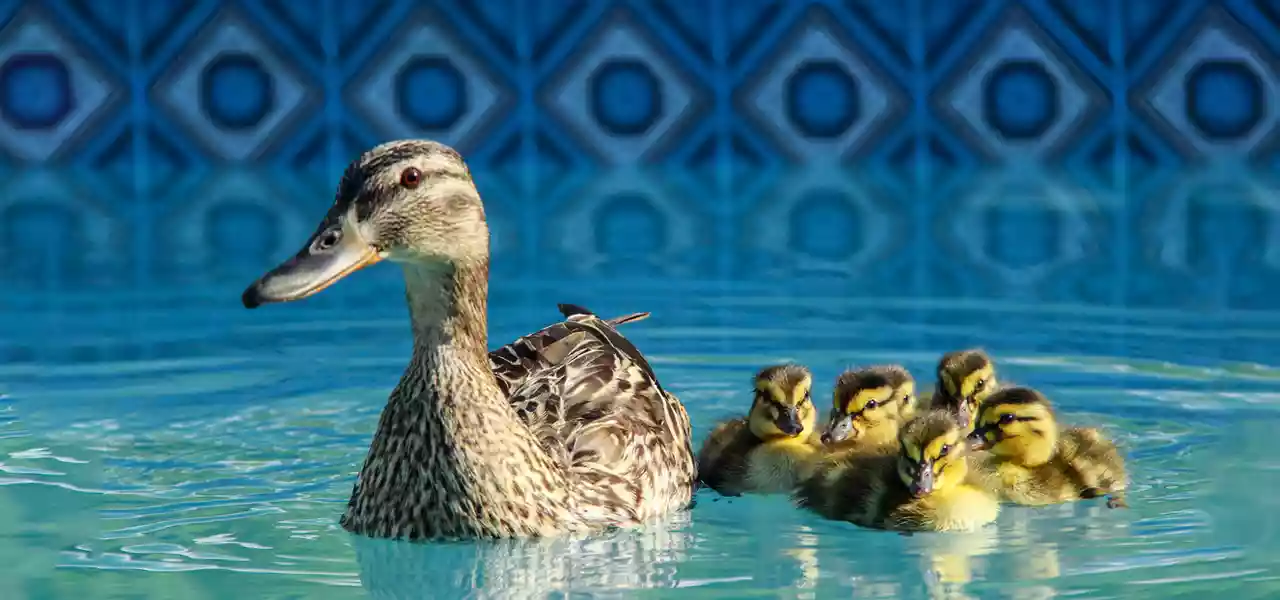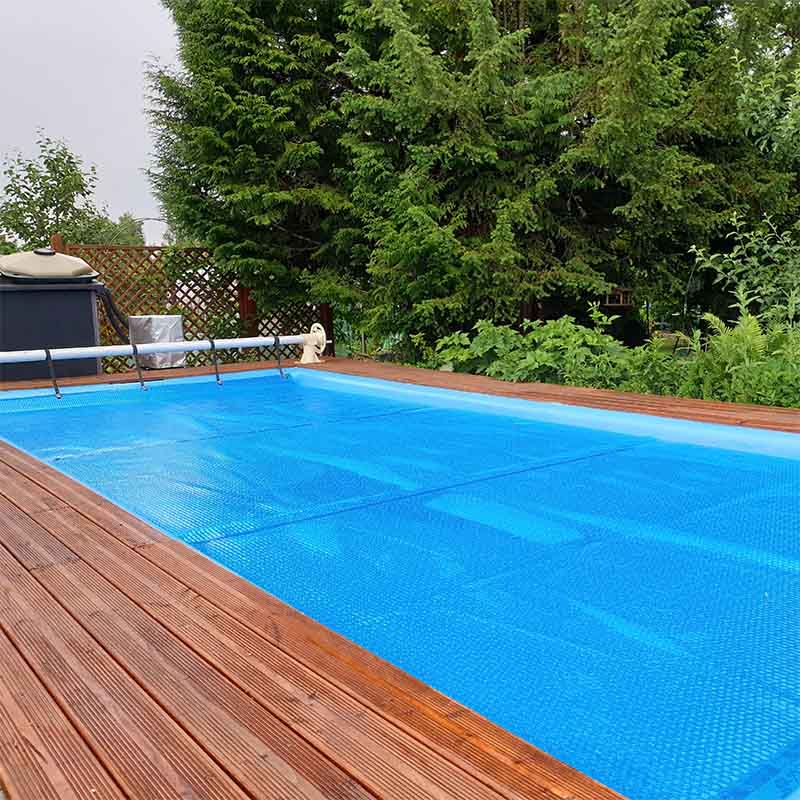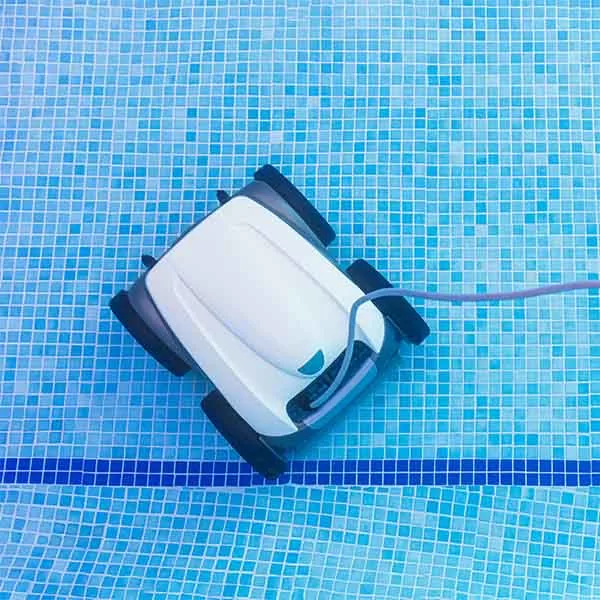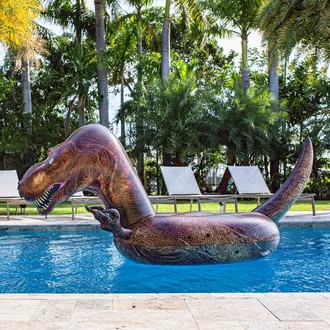FREE Standard Shipping On All Orders $100 or More!*

How to Keep Ducks Out of Your Pool
Fall is on the horizon, and you know what that means: cooler weather, cozy sweaters, and...ducks? That's right! As summer heads out and fall rolls in, ducks, geese, and other migratory birds begin their journey south to warmer climates. And if you live in the southern part of the U.S., your pool might become a bird bed and breakfast if you aren't prepared. So, if you're interested in learning how to keep ducks out of your pool, you're in the right place.
Why Should You Keep Ducks Out of Your Pool?
Even though they are relatively cute — especially as fuzzy ducklings — and friendly when domesticated, wild ducks are not good pool guests. This is primarily due to the bacteria and diseases they can carry, and the way in which those contaminants enter your pool water. E. coli, salmonella, and the dreaded bird flu are just a few diseases ducks can deposit in and around your pool. And yes, by “deposit” we mean poop! Ducks and other wild birds are notorious for leaving droppings in the pool, on the pool deck, and even on patios, which can lead to serious health concerns for people.
However, you're not the only one at risk. Like any wild animal, ducks will likely see your pool as a giant drinking fountain and slurp up the pool water. Unfortunately, drinking an excessive amount of chlorinated water can cause irreparable damage to the duck's kidneys. Additionally, your pool can be particularly dangerous for newborn ducklings. When they're born, ducklings don't have any oil in their feathers, making it very easy for them to get waterlogged and drown in your pool if they can't get out.
How to Keep Ducks and Other Critters Out of Your Pool
Now that you understand why you should keep ducks out of your pool, let's discuss how to do so. Thankfully, there are many simple, humane options to chose from when it comes to duck and critter prevention.

Pool Covers

Automatic Cleaners

Scary Floats

Guard Dog
1. Install a pool cover
The first line of defense against duck intruders is a pool cover. Since ducks and other birds migrate in the fall, it's the perfect time to put a cover over your pool. If you live in a warmer climate, a solar cover is the best option for your pool. Solar covers not only keep unwanted critters out of your pool, they also retain heat and reduce pool water evaporation. These lightweight, easy-to-use covers are ideal for protecting your pool and extending your swim season.
For folks living in cooler climates where pool closing is common, you probably already have a winter or safety cover stashed away for closing time. However, while these covers offer excellent protection, they are not meant to be installed while the pool is still open and in use. So, if you don't want to use a cumbersome safety or winter cover, consider a solar cover or even a standard leaf net to keep the birds out of your pool.
2. Turn on your automatic pool cleaner
Ducks and other birds tend to steer clear of moving water, as it inhibits their ability to see predators lurking beneath the surface. Which is why your automatic pool cleaner makes such a great duck deterrent! Not only will your automatic cleaner keep the pool water moving as it works through the cleaning cycle, but the long, snake-like cord is enough to scare even the bravest ducks away.
3. Use sprinklers or aerators
Although ducks are waterfowl who spend most of their lives in water, they are not fans of sudden bursts or splashes of water. Installing pool aerators or motion-sensor sprinklers in your yard offers a hands-free way to spook ducks and other birds out of your pool. Plus, aerators are a great way to increase your pools water circulation and keep it cool.
4. Leave scary floats out
While you may not think your sparkly unicorn float is scary, a little duck certainly will. Leaving large animal pool floats out is a guaranteed way to stop ducks in their tracks and keep them out of your pool. Dinosaur, dragon, and alligator floats make excellent guards against ducks, pigeons, and other pesky wildlife. However, don't leave floats out in the pool for too long, as water chemicals can deteriorate the lining.
Alternatively, you can set fake owls or other birds of prey around your pool and yard. These plastic predators offer excellent protection against all sorts of wildlife and pests.
5. Put your dog on guard duty
Dogs are natural predators of ducks, and their presence can keep ducks — and other animals — away from your pool. Oftentimes, a simple bark is enough to scare ducks out of your yard and keep them from coming back. But sometimes, you may need to let Fido outside for a bit to convince the quacking guests to hit the road.
However, it's important to remember that your dog should only scare the ducks, not hunt them. If your pooch has a high prey-drive, keep them on a leash or behind a fence to avoid causing harm to the ducks. And always ensure to supervise your dog whenever they're outside by the pool.
6. Ultrasonic animal deterrent
Ultrasonic deterrents emit high-frequency sounds that many animals find unpleasant. These devices are safe for humans and pets, and can be effective in keeping ducks away from your pool.
Keeping ducks out of your pool can be a challenge, but with the right methods, you can enjoy a duck-free swimming experience. Investing in a solar cover, using animal floats, or putting your dog on guard duty are among the best ways to keep wildlife away. Remember to be persistent, establish a routine, use these tips to make your duck problem a thing of the past!